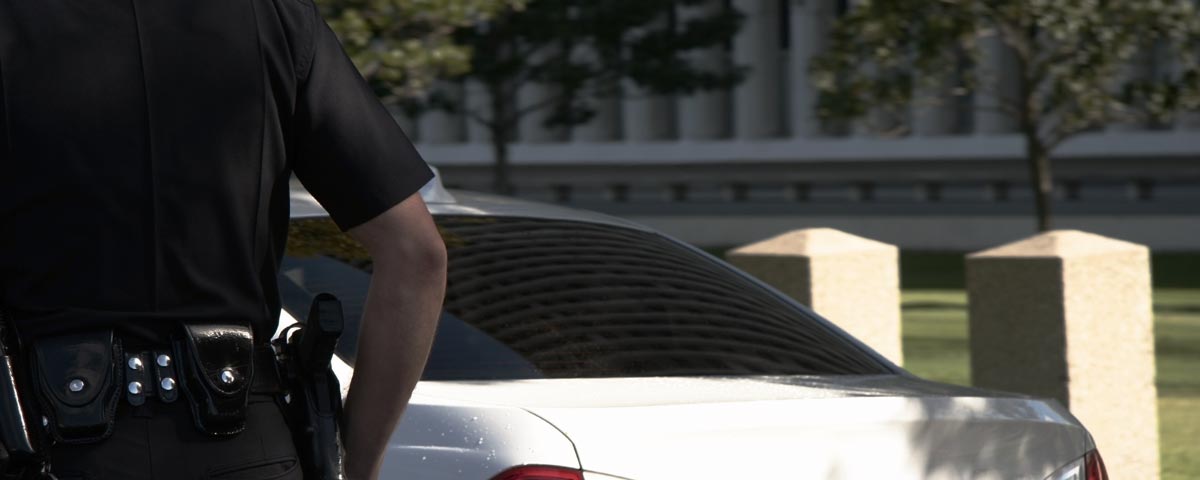If you’re stopped for a police pat down, also known as a terry stop, you may wonder if the police officer can take or seize whatever he find on you. As in most cases, the answer to these questions is – it depends.
The Fourth Amendment to the United States Constitution prohibits law enforcement officers from conducting unreasonable searches and seizures. This means that officers need a search warrant to search you or to seize anything that they find during a search. However, an exception to the warrant requirement exists when an officer reasonably believes criminal activity is occurring and that the suspect is armed and dangerous. In this circumstance, an officer may conduct a pat down search of the suspect if that pat down is only to find weapons and not evidence of a crime.
The “Plain Feel Doctrine”
Under the “plain feel doctrine,” a law enforcement officer conducting such a pat-down search can seize any object that he finds if the unlawful nature of the item is immediately apparent. For example, if a law enforcement officer is legally patting you down for weapons and feels something that he reasonably suspects to be cocaine in your pocket then he will be justified by the plain feel doctrine if he seizes the cocaine. This doctrine is an extension of the idea that anything discovered in “plain view” by law enforcement officers can be seized. The plain feel doctrine simply extends this idea to cases in which an officer discovers contraband through touch during an otherwise lawful search.
Minnesota v. Dickerson
The plain feel doctrine was established in the 1993 United States Supreme Court case Minnesota v. Dickerson. The Dickerson case stated that, if an officer had a justified belief that a person that he was investigating was “armed and presently dangerous,” the officer may conduct a warrantless police pat down search to determine if the suspect is actually armed. This search is supposed to be solely to protect the safety of the officer and not to discover evidence of crime. Accordingly, such a search must be strictly limited to those places where weapons could be discovered. While the Dickerson Court ruled that the seizure of cocaine in that particular case was unconstitutional, the Court also held that if it was immediately apparent that the item discovered on the defendant was unlawful then the seizure of that item would be justified under the plain feel doctrine.
State v. Briggs
Since Dickerson, many courts across the country have attempted to determine whether the “immediately apparent” nature of an object must be recognized solely based on how the object feels or whether the officer can take other factors, including his training and experience, into account. The North Carolina Court of Appeals confronted this issue in State v. Briggs. In that case, a law enforcement officer was helping to carry out a DWI checkpoint and when the Defendant was stopped at the checkpoint the officer recognized him as someone that he had arrested for drug charges in the past.
Although the Defendant denied that he had been taking drugs the officer smelled burned cigar tobacco from inside the vehicle, which the officer knew from his training and experience was frequently used to mask the smell of illegal drugs. Based on these facts, the officer asked the defendant to exit his vehicle and he conducted a police pat down, or frisk. During the frisk, the officer felt “a hard, cylindrical shape in [the defendant’s] pocket,” which the officer said felt like a cigar holder that people used “to keep their controlled substances in.” The officer then seized the cigar holder and opened it to find crack cocaine inside.
In court, the Defendant argued that the search and seizure of the crack cocaine was illegal because the only thing immediately apparent to the officer when he felt the object was that it was a cigar holder, which is not illegal to possess. The Court of Appeals held that “the better-reasoned view [was] to consider the totality of the circumstances in determining whether the incriminating nature of the object was immediately apparent” and thus the officer could lawfully seize the item. Accordingly, the Court found the seizure to have been appropriate due to numerous factors including that the officer had previously arrested the defendant for drug crimes, that the defendant was stopped at a late hour in a high crime area, and that the officer had knowledge that cigar holders were often used to store illegal drugs.
So what does it all mean? First, you should know that the plain feel doctrine exists and that a law enforcement officer can legally seize any object that he finds if the unlawful nature of the item is immediately apparent during a pat-down search for weapons. Second, you should know that, in North Carolina, the court will consider all of the surrounding circumstances in its determination of whether sufficient cause exists for seizing the object in question.
Facing Charges After a Police Pat Down in North Carolina?
If you’re facing criminal charges after a police pat down in North Carolina, we urge you to contact an attorney as soon as possible. An experienced criminal defense attorney can help you determine your options.
Dummit Fradin has been helping North Carolina residents since 1990. Contact us today to speak with an experienced attorney in Winston-Salem, Greensboro, or High Point.

